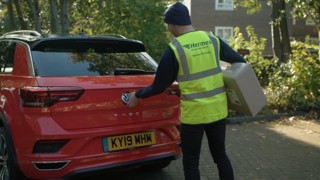The internet has changed the way we act as consumers with digitally delivered convenience becoming a game-changer in how we expect products and services to be supplied.
Streaming services have changed the way we watch films and boxsets or listen to music.
Smartphones, expensive products in their own right, can be effortlessly sourced and paid for on a monthly basis with the consumer taking ownership at the end of the contract, or choosing to upgrade to the next must-have mobile.
These same dynamics are shaping the way cars are sourced with new models now typically funded through Personal Contract Purchase (PCP) schemes with buyers paying a fixed monthly fee for usage, rather than ownership.
The success of PCPs has seen car manufacturers and their franchised car retailers reinvent themselves to deliver new mobility solutions in the form of subscription services aimed at satisfying the short-term needs of customers.
With increasingly sophisticated connected telematics now standard in new generation cars, retailers are ideally placed to offer further customer benefits whether they buy cars outright, fund them through a PCP or take out a subscription.
According to research from Counterpoint, the Hong Kong-based global industry analysis firm, the international connected cars market is expected to grow 270% by 2022.
In its Internet of Things Tracker research, Counterpoint identified General Motors, BMW, Audi and Mercedes-Benz as the leaders of the global connected car market and forecasts significant growth across Europe, notably in the UK, and China over the next five years.
The fact that some Ford drivers in the US can now pre-order a Starbucks drive-thru coffee, using Amazon’s voice activated Alexa service shows what is achievable through connected car technology and telematics as well as what consumers will start to expect and increasingly demand.
This is why car manufacturers are working closely with specialist third parties to deliver a range of services aimed at fulfilling customer needs; some brands will freely admit that while they know how to build cars, the connected world is outside of their area of expertise.
We know the connected car offers the potential to leverage data on vehicle build, history and real-time position.
Some car manufacturers are therefore focusing first, on linking data on the vehicle build including the advanced driver-assistance systems (ADAS) features to real life insurance claims to understand what features have the most impact on reducing collisions. This will be valuable in educating customers on the benefits of investing in this technology, whilst also giving manufacturers insights to improve vehicle design.
It also means when a customer buys insurance, the insurance provider will be able to confirm which ADAS features are present in their vehicle and which are active. This not only provides a further opportunity to educate the customer on the presence of ADAS but means insurance providers will be in the position to offer a discount for the presence of these features.
The second area leads on from this as car manufacturers establish how they can use the telematics data from connected cars for usage-based insurance (UBI).
At this stage, few car manufacturers have insurance revenue streams as this area tends to be controlled by specialist providers. However, some manufacturers see telematics and UBI as a way of taking ownership of this key element of a car purchase.
Accident assistance is another area where telematics will enable car manufacturers to offer a more comprehensive service to manage a breakdown or the aftermath of an accident.
However, data compliance and managing consumer consents are fundamental to the delivery of services that use connected car data. As this is new territory for car manufacturers, many are starting to work with data partners to secure the correct permissions.
To manage this process, LexisNexis Risk Solutions has created a central platform of car connectivity and vehicle build data with insurers and car manufacturers such as FCA Italy and Mitsubishi Motor Corporation participating. This will help deliver the insights needed around the customer and the car to enable two powerful industries to deliver game-changing consumer products and services based upon driving behaviour and vehicle safety features.
Data from this platform is already helping to power Mitsubishi Road Assist+ in the U.S. This makes UBI available to any Mitsubishi owner whose vehicle is within the five-year warranty period (which includes Roadside Assistance as a standard feature) and sends owners back to the dealership for rewards such as free or discounted oil changes. The Mitsubishi Road Assist+ will come as standard in the Eclipse and Outlander in 2020.
It’s exciting to consider the range of applications for the data that will result in potential discounts for customers based on how they drive and the safety features in their vehicle.
There is little doubt that the proliferation of connected car and telematics technology will help change the role of car manufacturers and retailers, empowering them to rollout a wide range of customer-centric services.
Author: Paul Stacy, automotive director, LexisNexis Risk Solutions


















Login to comment
Comments
No comments have been made yet.